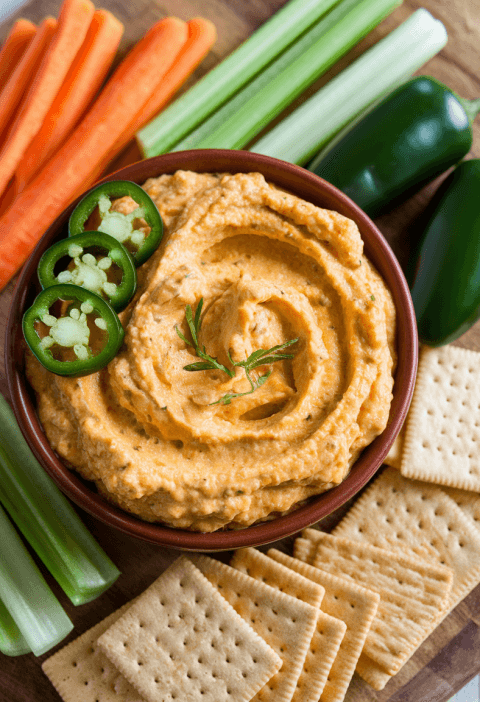Would you like to save this?
In today’s fast-paced world, keeping track of food expiration dates is essential for maintaining good health and preventing foodborne illnesses. While some foods remain safe to eat beyond their expiration dates, others pose serious health risks if consumed after their recommended shelf life. Understanding which foods you should avoid eating once they’ve expired can help you make safer choices for you and your family. In this article, we’ll explore 12 foods that should never be consumed past their expiration date and why it’s crucial to follow these guidelines.
The Importance of Adhering to Expiration Dates
Expiration dates aren’t just arbitrary numbers—they’re carefully calculated to ensure that food remains safe to eat and retains its quality up to a certain point. Consuming foods past their expiration dates can lead to foodborne illnesses caused by bacteria like Salmonella, E. coli, and Listeria. These can result in symptoms ranging from mild gastrointestinal discomfort to severe health complications. Therefore, it’s crucial to pay attention to these dates and know which foods are most dangerous to eat past their expiration date.
How to Read Expiration Dates
Understanding the different types of expiration dates on food packaging can be confusing. Here’s a quick breakdown:
- Best By: Indicates when the food is at its peak quality. Consuming it after this date might result in diminished flavor or texture, but it’s not necessarily unsafe.
- Use By: The last date recommended for the use of the product while at its best quality. Consuming food after this date can be risky.
- Sell By: Primarily for retailers, this date helps manage stock rotation. It’s safe to eat products after this date, but quality may begin to decline.
12 Foods You Should Never Eat Past Their Expiration Date
Certain foods become hazardous to your health if consumed after their expiration date due to their high susceptibility to bacterial growth or spoilage. Here’s a list of 12 foods you should avoid eating once they’ve expired:
1. Dairy Products
Dairy products like milk, yogurt, and cream can quickly become breeding grounds for harmful bacteria once past their expiration date. The high moisture content in these items accelerates bacterial growth, leading to spoilage. Signs of spoiled dairy include sour smells, curdling, and an off taste. Consuming expired dairy can cause food poisoning, with symptoms like stomach cramps, diarrhea, and vomiting.
Tip: Store dairy products in the coldest part of your refrigerator and keep them tightly sealed to extend their shelf life.
2. Fresh Meat and Poultry
Fresh meat and poultry are highly perishable and can become contaminated with bacteria such as Salmonella and Campylobacter when not consumed within their recommended time frame. Once past their expiration date, these items can pose serious health risks, causing symptoms like nausea, vomiting, and severe gastrointestinal distress.
Tip: Always check the color and smell of meat before cooking. If it smells sour or has a slimy texture, it’s best to discard it.
3. Eggs
Eggs can carry Salmonella bacteria, which thrive once the eggs are no longer fresh. A quick way to test the freshness of eggs is to place them in a bowl of water—if they float, they’re no longer safe to eat. Consuming expired eggs can lead to foodborne illnesses that cause digestive issues, fever, and abdominal pain.
Tip: Store eggs in their original carton and avoid placing them in the refrigerator door to minimize temperature fluctuations.
4. Pre-Packaged Deli Meats
Pre-packaged deli meats, such as ham, turkey, and salami, often contain preservatives but are still prone to bacterial contamination once opened and beyond their expiration date. The risks include Listeria, which can be especially harmful to pregnant women, infants, and the elderly.
Tip: Consume opened deli meats within 3-5 days and keep them stored in an airtight container in the fridge.
5. Fish and Seafood
Fish and seafood deteriorate rapidly after their expiration date due to their high protein content, which promotes bacterial growth. Spoiled fish can produce harmful toxins that remain even after cooking, leading to severe food poisoning symptoms such as vomiting, diarrhea, and abdominal pain.
Tip: Store seafood in the coldest part of your fridge and consume it within 1-2 days of purchase, or freeze it for longer storage.
6. Soft Cheeses
Soft cheeses like brie, ricotta, and feta have a higher moisture content than hard cheeses, making them more susceptible to mold and bacterial contamination. Consuming expired soft cheeses can result in foodborne illnesses, especially for those with weakened immune systems.
Tip: Discard any soft cheese that shows signs of mold or an off smell.
7. Fresh Berries
Berries are delicate fruits with a short shelf life and quickly become moldy once past their prime. Consuming moldy berries can lead to respiratory issues and allergic reactions. If you notice mold on one berry, it’s best to discard the entire container to avoid cross-contamination.
Tip: Store berries in a breathable container and consume them within a few days of purchase.
8. Leafy Greens
Leafy greens like spinach, lettuce, and kale can harbor harmful bacteria such as E. coli if consumed past their expiration date. Symptoms of foodborne illness from expired greens include stomach cramps, diarrhea, and, in severe cases, kidney failure.
Tip: Wash leafy greens thoroughly before eating and discard any wilted or slimy leaves.
9. Mold-Prone Items like Bread and Pastries
Bread and pastries can develop mold even before their expiration date if not stored properly. Mold spores can cause respiratory issues and allergic reactions, and some types of mold produce harmful mycotoxins. When mold appears, it’s best to discard the entire product rather than trying to salvage a part of it.
Tip: Store bread in a cool, dry place or freeze it to extend its shelf life.
10. Condiments with Natural Ingredients
Condiments made from natural ingredients like mayonnaise, pesto, and salsa can spoil quickly once opened and past their expiration date. The natural oils and lack of preservatives can lead to bacterial growth, posing risks of foodborne illnesses.
Tip: Refrigerate condiments after opening and check for changes in color or odor before use.
11. Pre-Made Salads and Sandwiches
Pre-made salads and sandwiches are convenient but have a short shelf life due to their combination of perishable ingredients. Once past their expiration date, these items can become breeding grounds for bacteria such as Listeria and Salmonella, causing severe foodborne illnesses.
Tip: Consume pre-made salads and sandwiches as soon as possible and always check for any signs of spoilage before eating.
12. Leftover Cooked Meals
Leftover cooked meals should be consumed within a few days, even if refrigerated. Over time, bacteria can grow in cooked food, leading to foodborne illnesses. Consuming leftovers past their safe window can cause symptoms ranging from mild gastrointestinal distress to severe vomiting and diarrhea.
Tip: Store leftovers in airtight containers and consume within 3-4 days. Label containers with the date of storage to keep track.
Conclusion: Prioritizing Health and Safety
Properly managing and adhering to expiration dates is crucial for ensuring health and safety. By being vigilant about the foods you consume and how you store them, you can protect yourself and your family from the risks associated with expired items. Always prioritize food safety by making mindful choices and adhering to guidelines that ensure the quality and safety of the foods you eat. If in doubt, it’s always better to err on the side of caution and dispose of questionable food items.







